Annual Report 2022



TABLE OF CONTENTS A Letter from the CEO and Board Chair ................1 AccessLex Supports ................................................... 3 AccessLex Discovers .................................................. 7 AccessLex Grants ....................................................... 11 LexScholars by AccessLex® .................................... 13 PLEDGE Fellowship ................................................... 15 Helix Bar Review by AccessLex SM ......................... 17 MAX by AccessLex® .................................................. 21 Law School Scholarship Databank ..................... 24 AccessLex Student Loan Calculator ....................25 Leadership .................................................................. 27
For many years, our Annual Report began with an ‘opening letter’ from the Board Chair and CEO. It highlighted successes from the previous year and offered a look forward to the next. While informative, the traditional long-form letter has become increasingly archaic, both in general and relative to the rest of a well-constructed, readable, and visually engaging Annual Report. And so, in more recent reports, you won’t find one.
But there is a time and place for everything. At AccessLex, we never want to waste your time unless we have something important to say — which is why, this year, we have commandeered this valuable real estate once again.

In 2012, external forces caused the AccessLex Board and its staff to develop a new vision to further its multi-decade pursuit to empower the next generation of lawyers. Finding opportunity in the midst of an existential challenge, we embraced the heart of our mission: increasing access to legal education for underrepresented populations, improving its affordability, and maximizing its value for all aspiring lawyers.
We made many choices — from recommitting to our mission, to selecting the tools necessary to achieve our goals, to determining the best operating philosophy to execute the vision. And then we were off — moving forward to create the required infrastructure for success and executing a disciplined approach toward our objectives while remaining focused on the changing environment in legal education that our primary beneficiaries — students — face.
Over the past ten years, tremendous progress can be seen in furthering our mission through our core focus areas: increased diversity of law school classes, improved tools for academic and bar success, data-informed decision-making in legal education, and the establishment of a best-in-class suite of products and services to help current and prospective students achieve admission, academic, and career success — LexScholars, MAX, XploreJD, and Helix Bar Review, to name just a few. Each of these offers incredible value to law students in its own right.
1
Yet the whole is greater than the sum of the parts. Our activities have become integrated in a way that amplifies their individual value —moving closer to the ideal envisioned all those years ago. Namely, that AccessLex apply its resources to enhance the welfare of students from admission to law school through admission to the bar. Our research, advocacy, and programming now reinforce each other in synergistic ways that allow us to achieve outcomes that would otherwise be elusive or, in some cases, unattainable.
For instance, our LexScholars Post Bacc (LexPostBacc) program has its origins in third-party, grantfunded research from the mid-2010s, as well as internal research around dissecting the value of the various features of pathway programs. Its recognition and acceptance are bolstered by the success of the Lex Scholars Pre-Law (LexPreLaw) program and the AccessLex reputation for quality and service in the myriad programs we offer.
But the LexPostBacc program is not just about increasing the number of admission-eligible applicants. Once admitted, AccessLex deploys its financial and educational assets to expose students to a rigorous law school prep curriculum. We use resources from our Ask EDNA! portal to help with the soft skills of navigating law school successfully. And the program closes with access to top-tier bar exam preparation from Helix Bar Review by AccessLexSM. This confluence of activities and resources creates multi-layered educational experiences for the students involved while enhancing access, affordability, and value along the way — and this is only one example of many.
We could go on, but if you take anything from this letter, know that this is only the beginning of our quest to empower the next generation of lawyers. We are proud of what we have accomplished in a decade’s time — and it only gets better from here!

2
CHRISTOPHER P. CHAPMAN President and Chief Executive Officer AccessLex Institute
ROBERT K. RASMUSSEN
Chair, Board of Directors AccessLex Institute
AccessLex Supports…
One of our primary objectives as a nonprofit serving and empowering those pursuing a law degree is informing, educating, and preparing students for the associated economic realities. Another primary objective includes advocating for the betterment of legal education, graduate and professional student aid and debt programs, and related policy issues. As such, we are committed to providing timely support, resources, and advocacy for and on behalf of students. Amid the lingering impacts of the COVID-19 pandemic, 2022 brought continued challenges, opportunities, and changes to students pursuing a legal education in the United States, including financial aid and debt considerations for law school graduates and prospective and enrolled law students alike.

3
Emergency Grants
In response to concerns from member schools about laws, regulations, and other obstacles that make it difficult to distribute emergency grant aid to students, the Company created a number of resources and offered other support to schools in distributing emergency aid and using their professional judgment authority. In support of this, several team members from the Center for Legal Education Excellence® and the Center for Education and Financial Capability® authored an article for the Journal of Student Financial Aid, which outlined challenges schools face and offered recommendations that law schools and policymakers can enact to streamline the process for administering emergency grants.
Work continues, with AccessLex team members regularly offering in person updates and presenting synchronous and asynchronous webinars about the current state of law regarding emergency grants and professional judgment, as well as convening and organizing law school deans and other administrators to discuss potential improvements and solutions for this timely and important issue.
Public Service Loan Forgiveness (PSLF)

In addition to the efforts made and resources provided in support of emergency grants, the Company also made strides in advocating for the U.S. Department of Education (ED) to make critical changes to the PSLF program over the last two years. AccessLex successfully advocated for ED to count payments made prior to consolidation, as well as certain deferments and forbearances, to create a clear appeal process for denials and allow for data matching with government employers. With the expiration of the PSLF Limited Waiver in October, these regulatory changes will provide consistency in the program, while expanding PSLF to better align with the original intent of the program.

The AccessLex Policy team also collaborated with stakeholders in the Massachusetts judiciary, the American Bar Association, and the National Legal Aid and Defenders Association to craft public comments to ED on how to expand PSLF eligibility to 1099 employees doing public service work. To reduce confusion for borrowers, the Company asked ED to extend the PSLF Limited Waiver to July 2023 so there would no longer be an eight-month period between the expiration of the waiver and the effective date of the new regulations.

4
Legislation, Higher Education Regulations, and Support for Students
AccessLex is proud to continue its long-time advocacy at the federal level, ensuring that a knowledgeable and trusted voice is present in the relevant policy debates impacting law students and legal education. Recent examples include our submission of public comments to ED on PSLF, interest capitalization, and Total and Permanent Disability discharge. In 2022 alone, AccessLex actively educated and advocated to Congress on topics such as PSLF, income-driven repayment, and Historically Black Colleges and Universities. In addition to these efforts, AccessLex provides substantial resources, tools, and timely updates to student loan borrowers, both current students and recent graduates, about relevant and important initiatives such as payment pause and extensions, returning to repayment, the PSLF Limited Waiver, and the Biden-Harris Administration Student Loan Debt Relief Plan, all at no charge.

5
2022 AccessLex – Association of Academic Support Educators (AASE)



ASP Faculty Scholars
For the second year, AASE and AccessLex have renewed their mutual commitment to supporting new voices in research and academic writing among Academic Support and Bar Success professionals through the ASP Faculty Scholars Program. The ASP Faculty Scholars Program awards five scholars with research funding and mentorship to develop a proposed research article with the goals of contributing to scholarship in the field and advancing the status of ASP and Bar Success Educators in legal academia. 2022 Scholars will present their works-in-progress at next year’s Annual AASE Conference, with final publication drafts anticipated by the end of the 2023.
6
AccessLex Discovers…
Show Them the Money: Improving Consumer Information on Need and Merit-Based Gift Aid to Equitably Empower Prospective Law Students
This study is an examination of the accessibility of institutional gift aid information provided on law school websites to better understand merit- and need-based gift aid in legal education. The research examined how law schools provide information on grant and scholarship awards and how improving the level of detail offered on grant availability and eligibility can help students better assess their odds of receiving institutional aid and law school affordability.
Nearly all law school websites provided some level of information about institutional gift aid.
Compared to need-based gift aid, information on merit-based gift aid opportunities was much more prevalent among law school websites.
While most law school websites explained how to apply or be considered for institutional gift aid, some lacked clear information on application procedures.
Eligibility requirements for institutional gift aid often lacked substance; few law schools offered sufficient detail on merit-based gift aid eligibility; and none provided details regarding need-based gift aid determinations.
The longevity of conditionality of scholarships was generally not communicated for merit-based or needbased gift aid.
Law schools generally did not provide information related to past gift aid distributions. Although a majority of law schools offered information regarding external scholarship options, 40% did not provide these resources.
Our mission is to improve access, increase affordability, and enhance the value of legal education. Our research serves our mission.
» » » » » » » FEBRUARY 7
Law School in a Pandemic, Year 2: Moving from Emergency Remote Teaching to Emerging Best Practices in Distance Legal Education


This report finds that law student satisfaction with online learning increased in the past year, but there are still gaps when compared with in-person classes, including participation. Conducted in partnership with Gallup, this was the second of two reports on law students’ views of distance learning.
Students largely reverted to in-person learning in the 2021-2022 academic year.
Gaps in program quality ratings by instructional mode narrowed considerably since the 2021 survey:
In 2021, 76% of students taking classes mostly or completely in-person rated their J.D. program as “excellent” or “good.” Fifty-one percent of those taking half of their classes online and half in-person and 57% of those taking classes mostly or completely online said the same.

In 2022, 78% of students who had returned to predominantly in-person classes rated their program as excellent or good — but so did 73% of those who were splitting their time between in-person and online classes and 72% of those who remained mostly or completely online.
In 2022, students splitting their time equally between online and in-person courses were as likely as those who were taking all or most of their classes in-person (50%) to say their program was worth the cost. However, students who remained mostly or completely online were least likely to feel this way, at 36%.
Among students reinterviewed in 2022, the percentage who agreed their professors were using teaching methods that engage them had risen since the 2021 study, regardless of instructional mode.
Students were less likely to feel they could “participate fully” in online classes and were more likely to report feeling emotionally drained after online classes compared to in-person classes.
Among students whose classes were mostly or completely online, the proportion who said it was easy to access career services fell considerably from 72% in 2021 to 50% in 2022.
» » · · » » » » MAY 8
Are Law Schools Cream-Skimming to Bolster Their Bar Exam Pass Rates?
This study examined the effects of attrition and transfer rates on law school bar exam passage rates in light of concerns that schools could strategically use these practices as tools, along with academic support interventions, for increasing their bar exam performance.
When attrition and transfer rates increase, bar passage rates tend to remain constant or decrease. Transfers and dismissals generally have little effect on a school’s bar passage differential — the school’s weighted average passage rate across jurisdictions where its graduates sat for the exam minus the weighted average of first-time bar passage rates among ABA law school graduates in those jurisdictions.
Schools with lower U.S. News rankings tend to lose more students to transfer. Schools with the highest rankings have lower transfer-out rates.
When a higher-ranked school is geographically close to lower-ranked schools, the higher-ranked school is more likely to receive transfers and less likely to shed them.
OCTOBER
What is Quality? Advancing Value-Added Approaches to Assessing Law School Bar Exam Performance
When accounting for the entering characteristics of admitted students, many law schools with low first-time bar passage rates — including some that have been cited for ABA Standard 316 noncompliance — are found to meet or exceed their expected bar exam performance based on our value-added analyses.
Many non-T14 schools are performing as well as or better than their first-time bar passage rates or U.S. News rankings would suggest.
What are commonly considered “best” law schools do not have the greatest value-added.
Measuring law school quality more holistically may advance efforts to increase equity in law school admission and diversify the legal profession.
» » » »
» » » »
This study proposes the use of a value-added method for measuring institutional quality that is based on a school’s ability to improve graduates’ likelihood of first-time bar passage while controlling for those students’ preadmission characteristics. JULY 9
ONGOING PROJECTS
Bar Exam Success Analyses Initiatives

Since the inception of the AccessLex | Law School Survey of Student Engagement (LSSSE) Bar Exam Success Initiative in 2018, AccessLex has served a total of 37 law schools across both initiatives:

The AccessLex | LSSSE Bar Exam Success Initiative was created with the fundamental goal of providing tangible information that law schools can use to help increase bar passage. Some of the questions this initiative seeks to answer for law schools are: What works for your students? What doesn’t? Where can resources and efforts be best invested?
The Bar Exam Success Analyses Initiative is available to institutions that do not meet the criteria for the LSSSE initiative. This smaller research opportunity is designed to support law schools in analyzing their institutional data to assess the extent to which their students’ academic performance, before and during law school, predicts their likelihood of first-time bar exam passage.
Improving Diversity in the Delaware Bench and Bar
AccessLex was enlisted for assistance, along with the National Center for State Courts, to provide subject matter expertise and data analysis, facilitate work groups, and conduct interviews in support of the initiative to address diversity issues in the Delaware legal community.
» » » 10
AccessLex Grants…
GRANT
Southwestern Law School
Western New England University School of Law
Association of American Law Schools (AALS)
University of San Francisco School of Law
University of Mississippi School of Law
Chicago-Kent College of Law, Illinois Institute of Technology
The NALP Foundation for Law Career Research and Education
State Bar of California
Seattle University School of Law
Florida A&M University College of Law
The State Bar of California
American University Washington College of Law
Western New England University School of Law
University of North Dakota School of Law
PURPOSE
Breaking Down Bar Barriers: A Methodical Approach
Bar Success Focus Group and Action Plan
Sponsorship, Research and Challenge Directed Grant
Academic and Bar Exam Success (ABES) Program
UM School of Law Bar Exam Barriers and Intervention
One & Done: A Chicago-Kent Bar Study Support Program
U.S. Law School Alumni Employment and Satisfaction:
Exam Features Experiment
PLEDGE
Evaluation of Academic Success Advising Program
Investigating the Benefits of Live Remote Proctor of
AUWCL Pledge Bar Prep Program
Bar Exam Stipend and Training Program (“The BEST
Barriers and Interventions Grant Program
In total, AccessLex made grants in the amount of $1.5 million in 2022 and has awarded more than $19 million across 147 programs since 2014.
AccessLex currently administers four active grant programs: Bar Success (Intervention and Research strands), Directed, Diversity Pipeline Intervention, and Barriers and Interventions. AccessLex also administers active grants for two programs that are being phased out: Financial Education Research and Unsolicited.
and the Advanced Analytical Skills (AAS) course
of Bar Exam
Total: $1,531,385.00
TYPE DATE AWARDED AMOUNT Approach Barriers and Interventions January 2022 $25,000.00 Barriers and Interventions January 2022 $25,000.00 Grant Directed April 2022 $375,000.00 Barriers and Interventions May 2022 $25,000.00 Intervention Program Barriers and Interventions May 2022 $25,000.00 Program Bar Success June 2022 $299,940.00 Satisfaction: Classes of 2019 – 2021 Directed September 2022 $40,000.00 Directed September 2022 $250,950.00 PLEDGE Fellowship October 2022 $24,878.00
PLEDGE Fellowship November 2022 $25,000.00
Directed November 2022 $225,500.00 PLEDGE Fellowship November 2022 $25,000.00
Program”) Directed December 2022 $140,117.00 Barriers and Interventions December 2022 $ 25,000.00
BEST
LexScholars seeks to increase law school access and success among people from underrepresented racial, ethnic, and socioeconomic backgrounds. The initiative supports aspiring law students who have the potential for success but who are unlikely to gain admission without robust access to resources and guidance.
LexScholars is comprised of two separate diversity pathway initiatives: LexPreLaw and LexPostBacc.
Through LexPreLaw, participants gain access to resources including LSAT prep and admission counseling to help them navigate the law school admission process. Since its launch in 2020, more than 500 aspiring law students have completed LexPreLaw. Many of them successfully gained admission to law school, including 40 from the most recent cohort.
In summer 2022, we launched LexPostBacc, a law school prep program. Through LexPostBacc, participants, called Scholars, undertake a rigorous law school prep curriculum that spans one year. For the inaugural program cycle, 29 law schools referred 79 of their applicants to LexPostBacc.

13
Because better diversity in schools makes schools better.
As a first-generation Samoan American from Compton, California, the resources that LexScholars offered me were pivotal to my success during this application cycle. Though I come from a background in higher education, the law school application process was a different beast. More first-generation students from underrepresented communities like me should utilize LexScholars because it provided me with a clearer pathway to gaining admissions to different law schools. I am forever indebted to this program for their support. Thank you!
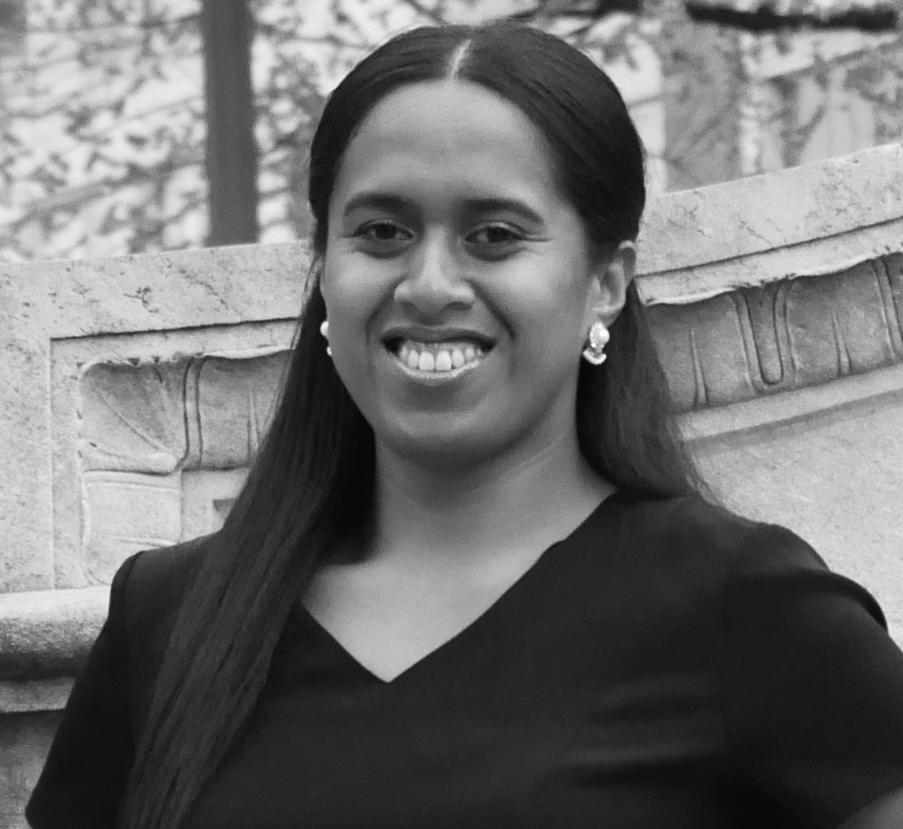
LEIATAUA ‘12 University of California, Berkeley
I am very grateful for the opportunity that LexScholars provided me. I was able to relearn the LSAT in an entirely new way. The LexScholars program also gave me a group of individuals that understood this journey and this process. We all became a team and held each other accountable throughout our studies. We even helped each other stay motivated throughout this process. My ability to participate in the LexScholars program helped me to raise my score significantly, which helped me to receive a full-tuition scholarship at the school I am attending in the fall. Their initiative to increase diversity in law schools by providing resources gives many people hope that their legal dreams can come true.

BELMONTES ‘19 Eastern University
I am so appreciative of the LexScholars program! This program has provided me with the support I needed to realize my academic and career goals. Through their LSAT prep support resources I have been able to increase my LSAT score and gain admission into a top 30 law school! Also, this program has connected me with a cohort that has been so supportive throughout this journey. We’ve provided each other personal and moral support and guidance. Thank you LexScholars for believing in me.
ROBINSON ‘19 University of Iowa
KATRINA
AMARIS
NATHAN
14
Fellowship PLEDGE
In December 2021, AccessLex and the Southern Education Foundation announced a partnership to establish the Professionals in Legal Education Developing Greater Equity (PLEDGE) Fellowship for law school administrators, faculty members, and professionals with similar experience and background. This 18-month fellowship, launched in June 2022, is a professional development program and problem-based research project. Fellows will complete intervention-based research projects (Capstones) focusing on Admission and Access, Academic Performance, or Bar Exam Performance.

15
THE FELLOWSHIP AIMS
TO:
• Cultivate evidence-based experimentation and assessment in legal education; Contribute to the development of best practices for fostering access and success among aspiring lawyers from underrepresented backgrounds;
Increase the law school enrollment and academic success of people from underrepresented racial, ethnic, and socioeconomic backgrounds;
• Expose fellows to principles and concepts underlying DEI, statistical methods, experimental design, and evidence-based decision making; and,
• Build partnerships with and among legal education stakeholders, particularly law schools that enroll disproportionate numbers of underrepresented students and those that seek to increase the enrollment of these students.

The partnership was met with resounding success. Three teams of two Fellows per law school were awarded the PLEDGE Fellowship during the inaugural 2022-2023 cohort.
American University Washington College of Law
Capstone: Efficacy of a cohort- and coaching-based bar exam preparation program for students from underrepresented racial and ethnic backgrounds.
Lisa Sonia Taylor
Joni Wiredu
Florida Agricultural and Mechanical University College of Law
Capstone: Efficacy of two interventions designed to improve analysis, reading, and writing skills among students who experience academic difficulty.
Eurilynne Anise Williams
Marlese Wells
Seattle University School of Law
Capstone: Efficacy of a bar exam intervention aimed at improving performance on multiple-choice problems among students who enter law school with low LSAT scores.
Isabel Freitas Peres
Lily Su
16 . . . . .
Fellowship
Our guiding principle in the development of Helix was to bring to market an exceptional bar review program that delivers all the content, tools, and resources needed to efficiently and effectively prepare for the bar exam — and to simultaneously challenge the notion that such a program must come with an exorbitant price tag.
— Christopher P. Chapman President and Chief Executive Officer AccessLex Institute
Becoming a lawyer is in their DNA. Empowering lawyers is in ours .
17
Helix Bar Review Turns One
There’s no such thing as a traditional law student anymore. With so many responsibilities and so many more distractions than ever before, students need the highest quality bar prep created for how they live and think today.
That’s why Helix Bar Review by AccessLex serves up short segments of content in a deliberate progression from day one. Instead of long stretches of reading outlines and watching lectures, Helix students see and hear key concepts broken down into subtopics and taught in a variety of formats and voices. This high impact teaching strategy is consistent with learning science and the ways our brains work — so learners stay involved, focused, and moving forward. And that makes Helix like no other bar preparation course available
In its inaugural year as the only nonprofit provider of a full-service bar exam preparation program, Helix Bar Review by AccessLex, the Company launched Helix UBESM, Helix MPRESM, and Helix MBESM to extraordinary success — pedagogically, operationally, and experientially — for thousands of Helix users. And now, we look forward to the launch of Helix CaliforniaSM in March 2023 for the July 2023 exam. Built on the same cutting-edge platform and design of our UBE course, with content developed by experts in California Bar Exam preparation, testing, and success, Helix California is comprehensive bar prep, offering everything a student needs to efficiently and effectively prepare for the bar, positioning them for first-time success.
Following the launch of Helix California will be the release of Helix FloridaSM. Currently in development using the same high quality, high impact learning approach as our UBE and California courses, Helix Florida will further expand the suite of Helix offerings available to bar takers.
18
Helix Bar Review
I am really satisfied with the Helix Bar Review experience. The platform was very user-friendly, and the content was well-organized and easy to digest. The videos were short and to the point with great hypos. As a repeat exam taker (3rd jurisdiction) it was very helpful to comb through the content and choose what worked best for me.
Helix Bar Review was recommended to me by a law school faculty member for practicing additional MBE questions. I was skeptical at trying an additional course but as soon as I did some practice questions, I was impressed by the quality of those questions.


Helix Bar Review is the best bar prep course! I used Helix and I passed with a score high enough to be admitted in any UBE state — 34 of them! It has just the right amount of information needed to pass the bar, so I wasn’t overwhelmed. Several different study plans were provided, and each can be a backup plan for the others. I was able to follow the study plan and finish the entire course in time for the exam. Helix has certainly gained my trust.
 TIFFANY SMITH, ‘22 Indiana University McKinney School of Law
STACY MCNANEY, ‘13 The George Washington University School of Law
TIFFANY SMITH, ‘22 Indiana University McKinney School of Law
STACY MCNANEY, ‘13 The George Washington University School of Law
19
JUSTIN LY, ‘22 University of New Hampshire Law School
Success Stories

I passed with Helix! Everyone was super helpful when I had questions and they were really responsive as well. They provide constructive feedback on your progress, which I thought was helpful. I liked that you could also schedule coaching calls because bar prep is NOT easy. I have ADHD, so the short videos and interactive slides kept my focus. I especially liked playing games during my breaks. I’m so glad I went with Helix.
Helix is exactly what I wanted and needed in a bar prep course: an efficient course with an accessible price point that had all the features and content I needed. Everything about it was straightforward and intuitive, from the short lecture videos to the online interface. Substantially cheaper and it still gave me what I needed to succeed on the bar exam.
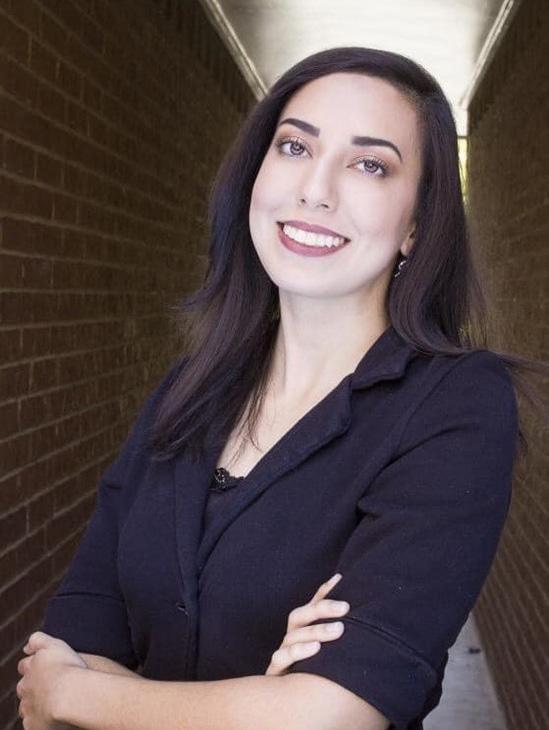 GIANNA DELLA SERA, ‘22 University of North Texas Dallas College of Law
GIANNA DELLA SERA, ‘22 University of North Texas Dallas College of Law
20
BRIAN THOMAS, ‘22 University of Arkansas School of Law — Fayetteville
ACCESSLEX CENTER FOR EDUCATION AND FINANCIAL CAPABILITY ®

The AccessLex Center for Education and Financial Capability ® is a leader in providing innovative and real-time financial education on the topics most relevant to law students. In 2022, AccessLex expanded its educational offerings to provide law students and student loan borrowers with the information they need to make informed decisions around returning to repayment, the PSLF Limited Waiver, and the Biden-Harris Administration’s Student Debt Relief Plan announcement. In addition, with investor education on the minds of today’s law students, we created a Foundations of Investing Guidebook – a comprehensive resource on investing, developed a Cryptocurrency Basics workshop, and launched an Invests webinar series to educate law students on investing.
MAXimize Your Financial Future
This fall, MAX by AccessLex ® celebrated the start of its sixth year with over 187 participating law schools and more than 40,000 registered current law students. Our comprehensive personal finance program remains completely free of charge to our member law schools — the 194 American Bar Association-approved nonprofit and state-affiliated law schools — and their students.
21
MAX continues to provide quick and easy to understand lessons, live webinars, and workshops, one-on-one financial coaching from Accredited Financial Counselors, and now nearly $400,000 in scholarship incentives each year to keep students motivated. In April 2022, MAX surpassed the $1,500,000 mark in scholarship awards
MAX by AccessLex® Hannah R. Arterian Memorial Scholarship

Hannah R. Arterian was a distinguished member of the Board of Directors from 2011 to 2020, including two terms as Board Chair. She was an ever-present participant at the Company’s annual financial aid and student success Conference, expressing that it was her obligation to support her financial aid office and to better understand the financial issues her students faced. And she was a strong advocate for advancing the Company’s mission, taking special interest in the creation of our MAX by AccessLex® personal finance program for law students.
Though Hannah passed earlier this year, her legacy will live on with the MAX by AccessLex ® Hannah R. Arterian Memorial Scholarship. Annually, one 1L MAX participant who completes the eight-part Financial Foundations course and attends at least two MAX events will be automatically entered to win a $50,000 scholarship toward their remaining law school tuition. The first drawing of the Scholarship will take place on May 1, 2023
MAX by AccessLex® Wins Outstanding Educational Program Award
In November of 2022, MAX by AccessLex® was awarded the Outstanding Educational Program Award by the Association for Financial Counseling & Financial Planning Education® (AFCPE). Each year, the award goes to an education program that has made a significant impact in the field of financial education. AFCPE is a leading organization in the area of financial counseling, coaching, and education.
22
MAX BY ACCESSLEX ®
SCHOLARSHIP WINNERS ARE TALKING!
MAX provided me with invaluable tips, strategies, recommendations, and information to help me plan for the future through effective management of my finances and debt. I will forever be grateful for what AccessLex has done for me.
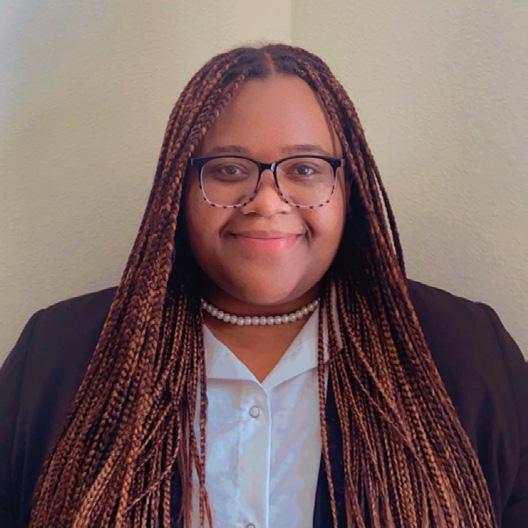
BENJAMIN HOOK, ’24
The Ohio State University Moritz College of Law
The MAX program alleviated my worries by providing finance lessons to help me manage my budget. Not only are all resources by AccessLex free, but they are also high quality and tailored to law students. It is hard to believe the amount of dedication and generosity AccessLex has toward law students all across the nation.
University of Georgia School of Law
I spent four years in my undergraduate career contemplating the cost of law school and the inevitable student loans that I would likely have to take out. Luckily MAX by AccessLex® provided me with the tools necessary to manage and optimize my loan repayment options. These tools alone made financial freedom more real for me. Now having won the MAX scholarship award, financial freedom is well within my grasp.
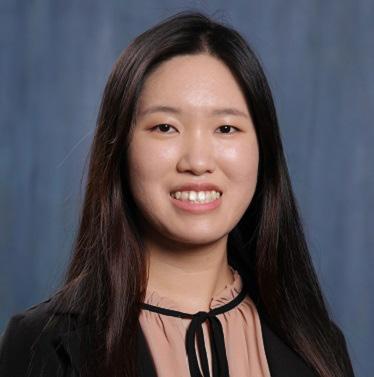
 CINDY PHAN, ’24
ANTOINETTE GABRIEL, ’22 Howard University School of Law
CINDY PHAN, ’24
ANTOINETTE GABRIEL, ’22 Howard University School of Law
1 2 3 1 3 2 23
The Scholarship Databank continues to be a flagship tool for law students, utilized as the primary scholarship resource at over 100 U.S. law schools. One key feature of the Databank is the quality of the law school scholarships and legal writing competitions housed within . Each new scholarship and writing competition is fully researched and vetted before inclusion. The Center for Education and Financial Capability verifies and updates existing scholarship and writing competition entries (currently 887) twice each year. These rigorous quality control practices help ensure the Databank remains the premier source for law school scholarships and a valued tool for aspiring law students, current law students, and recent graduates.

24
24
For the past decade, the AccessLex Student Loan Calculator has been the leading resource for hundreds of thousands of aspiring, current, and recent law students seeking to calculate their potential student loan debt and plan for repayment. Free and easy-to-use with no login required, the Calculator now includes several new features that allow law student borrowers to better understand the financial realities of their degree.
The Calculator helps users identify how much they may need to borrow in federal student loans based on their school’s cost of attendance, their projected expenses, and anticipated resources such as scholarships and grants. It also shows users how different student loan payments can fit into their budget and how much interest they can save with increased payments.

25
New features include a:
Consolidation and Refinancing Tool that educates users on the costs, benefits, and drawbacks of private refinancing and federal consolidation loans;
PSLF Calculator which projects how much may be forgiven under Public Service Loan Forgiveness for users who are interested in this option; and

Changing Repayment Plan Tool that helps borrowers in repayment analyze the financial impact of changing their repayment plan, both in monthly payment and total amount paid.
Lessons and educational content are woven throughout the Calculator to help student loan borrowers learn about their options and make more informed decisions about their finances.
“With all of the changes in the student loan landscape, it was imperative that the AccessLex Student Loan Calculator reflect the current repayment options available to borrowers — including Public Service Loan Forgiveness and consolidation options,” said Cynthia Cassity, Senior Vice President for Strategic Engagement, AccessLex Institute. “With this resource, and with coaching through our free AccessConnex Student Loan Helpline, meaningful support is at a law student’s fingertips throughout their law school journey.”
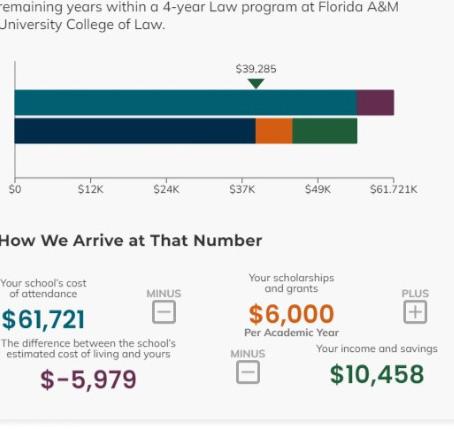
26
LEADERSHIP
Leadership Team
CHRISTOPHER P. CHAPMAN
President and Chief Executive Officer
CYNTHIA CASSITY
Senior Vice President Strategic Engagement and Chief Operating Officer Helix Bar Review
DEBRA C. SWARTZ
Senior Vice President General Counsel and Chief Compliance Officer
AARON N. TAYLOR Executive Director
AccessLex Center for Legal Education Excellence®


JAMES CASSITY
Senior Vice President Corporate Operations and Chief Information Officer
SAMUEL GREENHALGH, JR, CPA
Senior Vice President and Chief Financial Officer
DAVID RAMAGE
Senior Vice President and Chief Investment Officer
EVNEET KHURANA
Vice President
Marketing and Communications
TIFFANE COCHRAN
Vice President Research
27
Board of Directors
ROBERT K. RASMUSSEN
Board Chair
J. Thomas McCarthy Trustee Chair in Law and Political Science
University of Southern California, Gould School of Law
MARY CROSSLEY
Board Vice Chair
Professor of Law
University of Pittsburgh School of Law

DAVID A. BRENNEN
Board Secretary/Treasurer
Frost, Brown and Todd Professor of Law and Immediate Past Dean
University of Kentucky J. David Rosenberg College of Law
CHRISTOPHER P. CHAPMAN
President and Chief Executive Officer
AccessLex Institute
DANIELLE M. CONWAY
Dean and Donald J. Farage Professor of Law
Penn State Dickinson Law
MARK C. DAWKINS
Professor of Accounting, Coggin College of Business
University of North Florida
VILAS DHAR
President and Trustee
Patrick J. McGovern Foundation
CHRIS GUTHRIE
Dean and John Wade-Kent Syverud Professor of Law
Vanderbilt Law School
RENÉE MCDONALD HUTCHINS
Dean
University of Maryland Francis King Carey School of Law
MAUREEN A. O’ROURKE
Associate Provost for Faculty Affairs
Boston University
AUSTEN L. PARRISH
Dean and Chancellor’s Professor of Law
University of California, Irvine School of Law
RALPH D. SINSHEIMER
Managing Director
Klingenstein Fields Advisors
28
AccessLex Institute ®, in partnership with its nearly 200 nonprofit and state-affiliated ABA-approved member law schools, has been committed to improving access to legal education and to maximizing the affordability and value of a law degree since 1983. The AccessLex Center for Legal Education Excellence ® advocates for policies that make legal education work better for students and society alike and conducts research on the most critical issues facing legal education today. The AccessLex Center for Education and Financial Capability ® offers on-campus and online financial education programming and resources to help students confidently manage their finances on their way to achieving personal and professional success. AccessLex Institute is headquartered in West Chester, PA.
AccessLex.org © 2022 AccessLex Institute (12/22)


























 TIFFANY SMITH, ‘22 Indiana University McKinney School of Law
STACY MCNANEY, ‘13 The George Washington University School of Law
TIFFANY SMITH, ‘22 Indiana University McKinney School of Law
STACY MCNANEY, ‘13 The George Washington University School of Law

 GIANNA DELLA SERA, ‘22 University of North Texas Dallas College of Law
GIANNA DELLA SERA, ‘22 University of North Texas Dallas College of Law




 CINDY PHAN, ’24
ANTOINETTE GABRIEL, ’22 Howard University School of Law
CINDY PHAN, ’24
ANTOINETTE GABRIEL, ’22 Howard University School of Law






